Deep Learning for Experimental 3D Image Analysis
DTU course 02510

General course objectives
If you want to analyze complex 3D images using deep learning, this course is for you! You will also learn how to record 3D images using X-ray µCT scanners.
You will get practical experience in using deep learning to analyze 3D images. The main focus is on image segmentation, but you will also learn about other methods such as image classification and detection. 3D imaging is used in medicine, biology, materials research, etc. to analyze a material's internal structure including its shape, size, number of features, etc.

Learning objectives
A student who has met the objectives of the course will be able to:
- select and deploy appropriate deep learning-based methods for image segmentation, classification, and detection problems.
- select and deploy appropriate tools for inspecting and interpreting the deep learning progress and results,
- organize data for deep learning to consider training, validation, testing, and data balancing,
- select and use tools for efficient data labeling,
- plan image analysis pipeline including problem description, initial investigation, and deploying deep learning methods,
- plan 3D imaging experiments including sample selection and preparation,
- carry out experiments including mounting samples in a scanner, setting scanner parameters, acquiring data, and reconstructing a 3D volume,
- compute structural measures from extracted image features,
- quantify measured structures and present relevant statistics.

Content
After completing this course, you can use deep learning to analyze 3D volumetric images. To do this, you have gained knowledge of relevant deep learning analysis methods, how you deploy these methods on a computer, and how you prepare data for deep learning. Data is core to deep learnin-based 3D image analysis, and you gain experience with annotation tools necessary for preparing training data for segmentation. In addition, the course includes experimental elements, so you learn how to prepare samples to be scanned and are introduced to 3D imaging and CT reconstruction. You will use Python for implementing scripts to solve analysis tasks based on existing deep learning libraries and functions. Finally, you will learn evaluating model performance, partly through the validation and test data and partly through visual inspection of the obtained analysis result.
Two courses in Experimental 3D Image Analysis
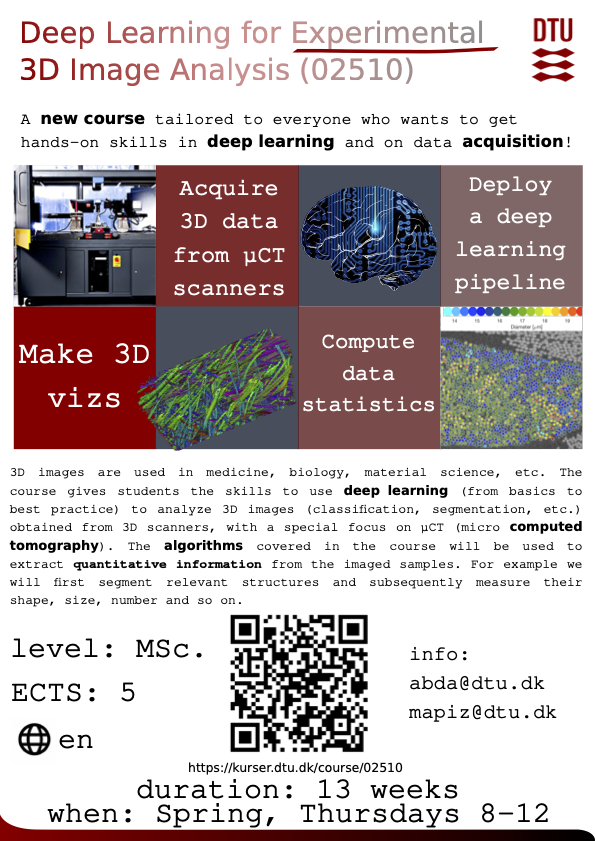
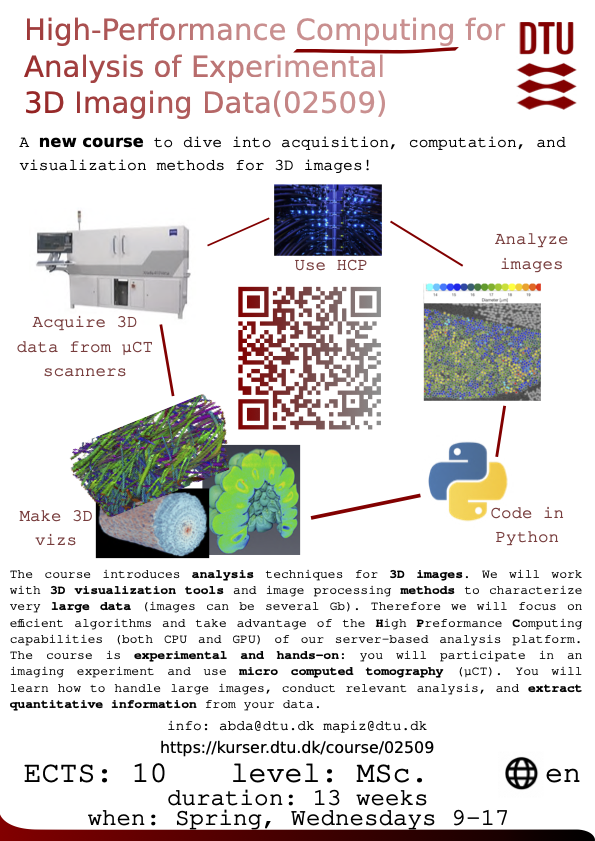

The other course is experimental 3D image analysis
In parallel to this course (with focus on deep learning), there is the new course 02509 High-Performance Computing for Analysis of Experimental 3D Imaging Data, which introduces other image analysis techniques and more hands-on imaging. You are also recommended to follow that course. There is a demand for this expertise, and the skills you will learn are in high demand in industry and research.
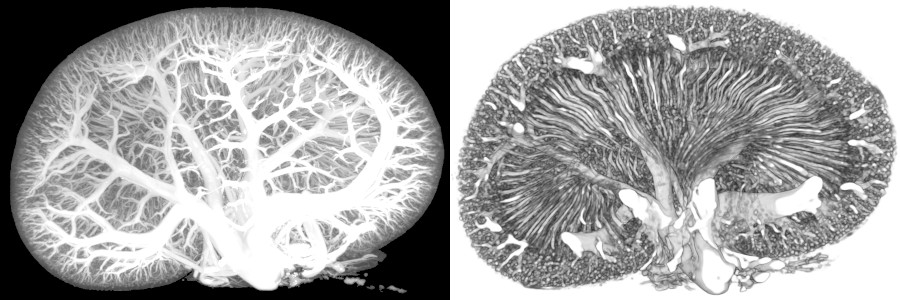
Course information
- Point (ECTS): 5
- Type: MSc
- When: Spring Thursday 8-12 (F2B), 13-weeks period
- Where: Lyngby
- Exam: Oral examination
- Evaluation: 7 step scale
- Prerequisites: None, but having worked with image or other data analysis is an advantage
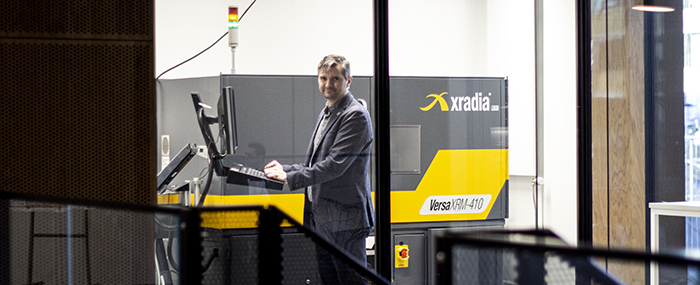
Course Responsibles
- Anders Bjorholm Dahl, abda@dtu.dk
- Marco Pizzolato, mapiz@dtu.dk
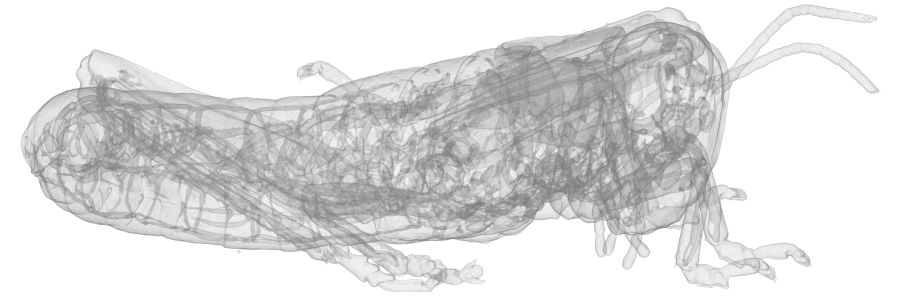
3D µCT scan of a grasshopper
